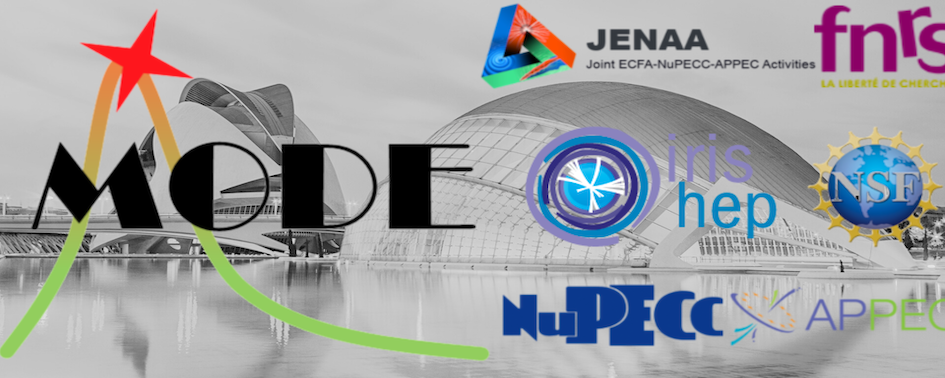Conveners
Computer Science
- Lisa Kusch (TU Eindhoven)
Computer Science
- Lisa Kusch (TU Eindhoven)
Computer Science
- Lisa Kusch (TU Eindhoven)
Applying algorithmic differentiation to particle simulations like Geant4 would allow us to evaluate derivatives of simulation outputs with respect to inputs, e.g. of the mean energy depositions in calorimeter layers with respect to geometry parameters. Such derivatives could become instrumental for a number of application like detector optimization or parameter fitting in HEP. However, besides...
Current state-of-the-art in charged particle tracking follows a two-step paradigm where a graph neural network optimizes an intermediate prediction-loss during training and is later combined with a discrete, non-differentiable, optimization step during inference, constructing disconnected track candidates. In this talk, we introduce and assess a novel end-to-end differentiable tracking...
Accurately simulating the response of monolithic active pixel sensors requires detailed technology computer-aided design simulations of the electric field inside the chip. This is used to model the electron propagation from their point of origin to potential collection. Specialized simulation software, such as Allpix², has been developed for this purpose. However, the electric field is often...
This presentation will describe a NASA project called the Universal Simulation and Modelling Language (USML) that is used as the computational engine for a mission called the Active Learning Physics Simulator (ALPS).
Background:
When performing physical simulations, there is a tradeoff between accuracy and computation time. For example, atomic-scale simulations are highly accurate but...
With the growing datasets of HEP experiments, statistical analysis becomes more computationally demanding, requiring improvements in existing statistical analysis software. One way forward is to use Automatic Differentiation (AD) in likelihood fitting, which is often done with RooFit (a toolkit that is part of ROOT.) As of recently, RooFit can generate the gradient code for a given likelihood...
Advanced optimizations for source transformation based automatic differentiation
Clad is a LLVM/Clang plugin designed to provide automatic differentiation (AD) for C++ mathematical functions. It generates code for computing derivatives modifying abstract syntax tree using LLVM compiler features. Clad supports forward- and...
Kokkos is a high-performance library allowing scientists to develop performance-portable C++ code capable of running on CPUs, GPUs and exotic hardware. The Kokkos infrastructure enables researchers to write generic code for libraries, frameworks, and scientific simulations such as climate simulation tools like Albany and HOMMEXX that can later be run on a large scale on any supercomputing...
We present Numba-Enzyme, a gradient-providing Just-in-time (JIT) compiler for simulations in Python providing rewrite-free access to gradients for Numba, a popular LLVM-based Python compiler for simulations. In recent years a number of simulation areas have started to expand beyond efficient simulations, and began to utilize gradients for gradient-based optimization, differentiable simulation...
